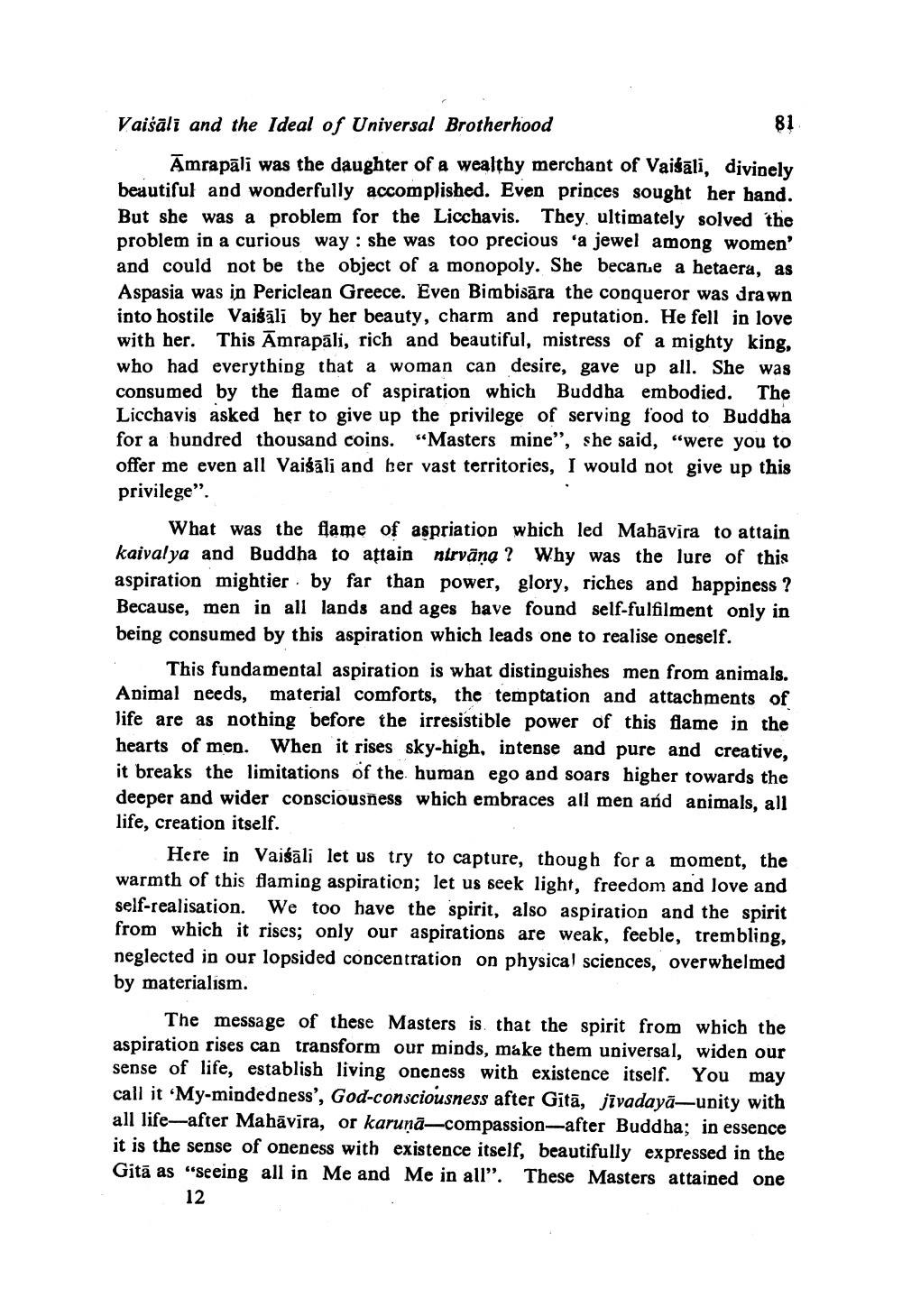________________ Vaisali and the Ideal of Universal Brotherhood Amrapali was the daughter of a wealthy merchant of Vaisali, divinely beautiful and wonderfully accomplished. Even princes sought her hand. But she was a problem for the Licchavis. They, ultimately solved the problem in a curious way: she was too precious 'a jewel among women' and could not be the object of a monopoly. She becane a hetaera, as Aspasia was in Periclean Greece. Even Bimbisara the conqueror was drawn into hostile Vaisali by her beauty, charm and reputation. He fell in love with her. This Amrapali, rich and beautiful, mistress of a mighty king, who had everything that a woman can desire, gave up all. She was consumed by the flame of aspiration which Buddha embodied. The Licchavis asked her to give up the privilege of serving food to Buddha for a hundred thousand coins. "Masters mine", she said, "were you to offer me even all Vaisali and her vast territories, I would not give up this privilege". What was the flame of aspriation which led Mahavira to attain kaivalya and Buddha to attain nirvang? Why was the lure of this aspiration mightier by far than power, glory, riches and happiness? Because, men in all lands and ages have found self-fulfilment only in being consumed by this aspiration which leads one to realise oneself. This fundamental aspiration is what distinguishes men from animals. Animal needs, material comforts, the temptation and attachments of life are as nothing before the irresistible power of this flame in the hearts of men. When it rises sky-high, intense and pure and creative, it breaks the limitations of the human ego and soars higher towards the deeper and wider consciousness which embraces all men and animals, all life, creation itself. Here in Vaisali let us try to capture, though for a moment, the warmth of this flaming aspiration; let us seek light, freedom and love and self-realisation. We too have the spirit, also aspiration and the spirit from which it rises; only our aspirations are weak, feeble, trembling, neglected in our lopsided concentration on physical sciences, overwhelmed by materialism. The message of these Masters is that the spirit from which the aspiration rises can transform our minds, make them universal, widen our sense of life, establish living oneness with existence itself. You may call it My-mindedness', God-consciousness after Gita, jivadaya--unity with all life-after Mahavira, or karuna--compassion-after Buddha; in essence it is the sense of oneness with existence itself, beautifully expressed in the Gita as "seeing all in Me and Me in all". These Masters attained one 12




